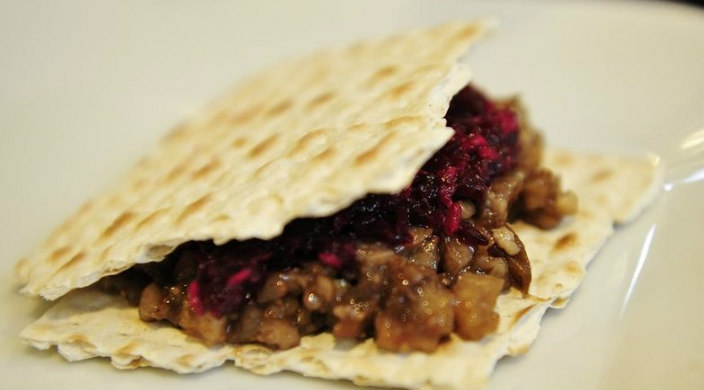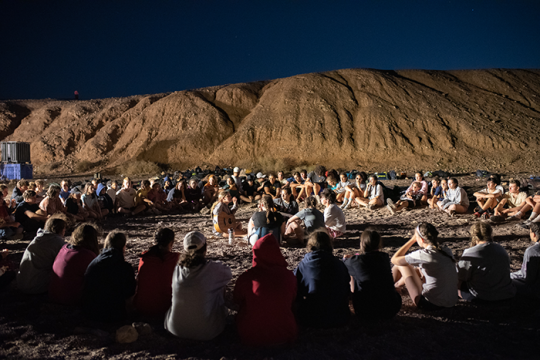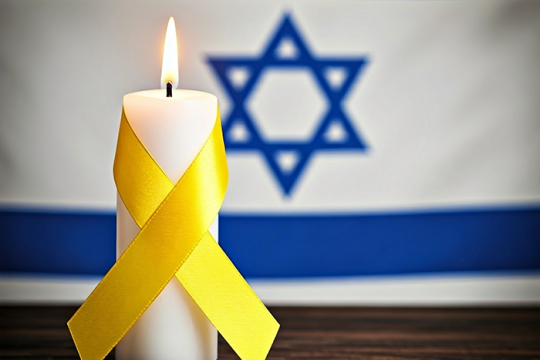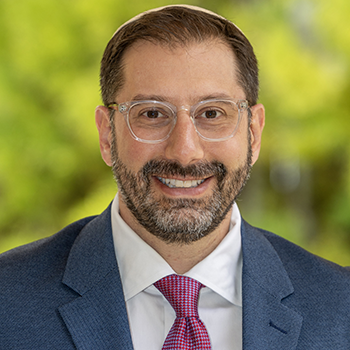
As Pesach approaches, Jews around the world are busy preparing for the chag (holiday). We are searching for chametz (leaven), sweeping, vacuuming, scrubbing — it’s Jewish spring cleaning. Like so many Jewish holidays, Pesach follows the Jewish trope of “They tried to kill us, we prevailed, let’s eat!”
One of the things we eat on Pesach is a "Hillel sandwich," which combines the bitter maror (bitter herbs) with the sweet charoset (apple and nut mixture) between two pieces of matzah. This symbolizes the need to take the good with the bad, to acknowledge the suffering alongside the redemption.
The Hillel sandwich is emblematic of so many chapters of Jewish history. In Egypt, we experienced the hardships of slavery and the joy of exodus. When we first entered the Land, we celebrated our autonomy but contended with many enemy tribes. In Babylon we felt the pain of exile but established vibrant centers of Jewish learning. Our relationship to the State of Israel today is part of this chain.
Israel is a beautiful country, a reassuring safe-haven, a center of technological innovation, a producer of incredible art and literature, a convener of brilliant scholars, and perhaps most importantly the heart and homeland of the Jewish people.
And yet, for Reform Jews Israel can be a challenging place.
The ultra-Orthodox in Israel exercise an unfair amount of political power and define Judaism very narrowly. They currently have exclusive control over conversions, marriages and divorce. They are also working to impose Shabbat observance over the whole country, limit women’s visibility, and reject pluralism at holy sites like the Western Wall.
Despite all these challenges, North American Reform Jews continue to love Israel, and Israeli Reform congregations continue to expand. The 100th Israeli Reform rabbi was ordained this year, and congregations have been established from the Golan Heights to the Negev Desert. Our partners on the ground are winning in the courts, advocating for justice, and changing public opinion. More and more Israelis are finding new ways to connect to Jewish life, and are discovering that they can build accepting, open Jewish communities.
Eating Hillel sandwiches this year, we taste the bitterness of rejection, of frustrating politics and obstacles. We savor the sweetness of our growth, inspiring Israelis to connect to Judaism and American Jews to connect to Israel. We take the challenges with the victories and move forward, continuing to work for a wholly sweet future.
At the very end of the seder, we come to the three most important (and most Zionist) words, "L'Shanah haba'ah b'Yerushalayim" or "Next year in Jerusalem." Before you and your family close the haggadah, we invite you to incorporate a special L'Shanah haba'ah b'Yerushalayim focused on creating a brighter, sweeter next year in Israel.
Please consider supporting ARZA this year by making a gift that is meaningful to your family.
Related Posts

From Ancient Ruins to Modern Marvels: 10 Must-See Sites in Israel

5 Life-Changing Reasons to Join Yallah! Israel This Summer


